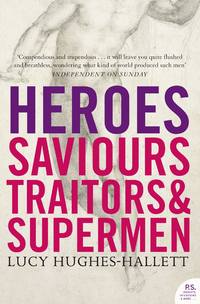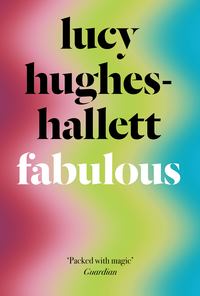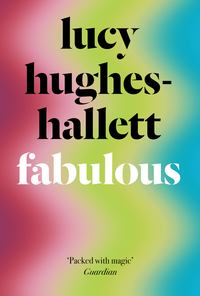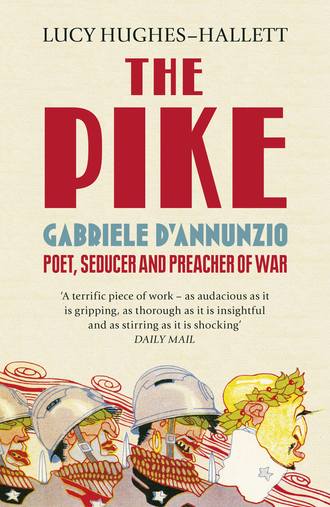
Полная версия
The Pike: Gabriele d’Annunzio, Poet, Seducer and Preacher of War
He was given a grand send-off at the Gare de Lyon. ‘Women rushed to the station,’ he wrote. ‘Almost all of them were acquainted with my bed.’ Nathalie was not on the platform. D’Annunzio, who had begun referring to her as ‘the nuisance’, had sent her back to the farm. But the Amazon from Arcachon was in the crowd gathered to see him off, and so, probably, were several of his other lovers. The lesbian novelist Sibilla Aleramo, like him a member of the sexually ambiguous coterie who met at Nathalie Barney’s salon, and a friend of the painter Romaine Brooks, whose only male lover he was, alleges he had been carrying on affairs with ‘four, five or six’ women simultaneously during the previous year.
On 4 May 1915, just over five years after he had left Italy bankrupt and with ignominious haste, he recrossed the border. While he had dallied in Paris through the first months of the war, ordering haute-couture outfits for his dogs (red and blue, made by the couturier Charles Worth), teaching himself glass-blowing and twiddling at the recipe for his patent perfume, d’Annunzio had become, in his compatriots’ collective imagination, the man who could save their national honour. He had left the country as a celebrity whose escapades, however amusing, were becoming undignified. He returned as a nationalist messiah.
Giosuè Carducci, the great poet of the previous generation, had heralded the advent of such a man. ‘Prepare the way for the master who is to come, for the spirit of Italy, grand and great, for the genius, the beatings of whose approaching wings we already hear.’ So had d’Annunzio himself, writing enigmatically that ‘He will come from the silence, defeating death,/The necessary Hero.’ During his absence in France he had, for Italians of a nationalist and militarist persuasion, acquired the status and glamour of such a messianic hero. In Milan, his supporters organised a series of readings of his poems to celebrate his advent. ‘Rapt in his sublime visions, he seemed to have forgotten his beautiful fatherland,’ wrote an admirer. ‘But no! As soon as the new dawn appeared in the skies, he arose proudly and with a shudder of love he ran to the breast of the great mother.’
As d’Annunzio’s train approached the great mother’s border, he bound his eyes, lest, as he explained, the first sight of his homeland prove too emotionally overwhelming. Once he was on Italian territory, he was met at every stop by enthusiastic crowds. Young women climbed on the train’s running board, kissing the glass of his compartment’s windows and handing him flowers. In Turin, according to the following day’s Corriere della Sera, ‘thousands of hands reached out to him’, while d’Annunzio, with a catch in his throat, addressed them from the window of the train. As he approached Genoa, a professor at the university cancelled a lecture, urging his students not to learn history but to go meet d’Annunzio at the station and ‘live history’ instead.
With difficulty d’Annunzio was got into a motor car and driven through the press of people. Safely arrived at his hotel, he came out onto a balcony and spoke to the excited crowd. ‘Five long years of absence and sadness lie behind me, abolished!’ There had, in fact, been nothing but his own inclination to prevent him returning to Italy earlier, but he referred to his absence as an ‘exile’. ‘Now I live, I wish only to live, a new life.’
The next day he spoke on the waterfront. Having read the text of his oration, King Victor Emmanuel had decided he had better stay away. So did all the government ministers. Italy was still neutral. D’Annunzio’s rhetoric was too aggressive to receive the sanction of a royal or ministerial audience. He was not, however, asked to tone it down.
The quayside was thronged. Some hundred survivors of Garibaldi’s ‘Thousand’, living mementoes of Italy’s heroic foundation, were there, as well as the new Garibaldini in their Paquin-tailored tunics. News photographs show the monument engulfed in a sea of straw boaters. Men (there are few women visible) scramble out on the rocks for a better view, or take to their boats to avoid the crush on land. The mayor, who opened proceedings, addressed himself to the dignitaries assembled on the platform. Neatly demonstrating his understanding of the modern political process by turning the other way, d’Annunzio spoke out to the crowd.
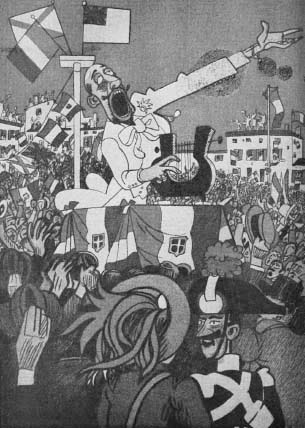
Without any kind of amplification, he could make himself heard by thousands. The German caricaturist, Trier, depicted him later that year as a ranter, his face contorted, his mouth gaping wide. But the image is misleading. Even when inciting his hearers to make war, his strategy was not to harangue but to fascinate and seduce. His language was violent, his manner dulcet. His oration at Quarto was a magnificent piece of word-music. In it d’Annunzio paid tribute to the heroism of ‘The Thousand’, thus appropriating their glory for himself. He quoted Garibaldi’s most famous line: ‘Here we make Italy, or we die!’ He spoke of the noble aspirations of Rome’s ancient heroes. He flattered his audience and challenged them, daring them to be worthy of their great antecedents. He wrapped his provocative politics in the lulling grandeur of liturgical rhythms. He ended with a series of beatitudes:
Blessed are the young who hunger and thirst for glory, for they shall be satisfied …
Blessed are the merciful, for they shall be called upon to staunch a splendid flow of blood, and dress a wonderful wound …
Blessed are they that have most, because they can give most, dare most …
Blessed are they who return with victories, for they shall see the new face of Rome.
It was incantatory. It was enthralling. It was blasphemy. ‘This man!’ wrote Romain Rolland, outraged. ‘This man, who is the incarnation of literary falsehood, dares to pose as Jesus!’ Rolland had once enjoyed d’Annunzio’s company, but they were now diametrically opposed in their attitudes to war. Rolland was a pacifist, while d’Annunzio had recreated ‘the Sermon on the Mount to incite Italy to violate her treaties and make war on her allies’.
There were those who thought d’Annunzio’s showmanship too contrived and his speech preposterously over-erudite. But d’Annunzio knew what he was doing. He was aware that politics was a performance art. Later in the year he noted how dull and patronising was a priest who spoke over-simply to uneducated solders, ‘believing that humble hearts don’t know how to understand high and noble eloquence’. That was not a mistake he ever made. He offered intoxicating rhythms, clanging declarations, the invocation of grand abstractions and resonant myth. Whether or not his audience followed the meaning of everything he said, they responded fervently to the hypnotic way he said it. At Quarto the crowd surged forward, sang the Marseillaise in sign of their support for their ‘Latin sister’ France, and shouted out for war.
The city was full of fervent nationalists. Again and again d’Annunzio was called upon to address them. In four days he spoke seven times. His speeches were reported all over Europe. Italian government ministers were nervous: they were engaged in secret negotiations of the utmost delicacy and d’Annunzio was a dangerously loose cannon. Sonnino called his appearance at Quarto ‘clowning’. Foreign Minister Marini dismissed it as ‘stupid’. But French reporters were full of admiration and gratitude. His enemies were respectful too: a German cartoon, showing him ranting and frenzied, was captioned ‘all would go well if we had cannon of the calibre of his big mouth’.
What seemed to be taking place in Genoa was the transfiguration of d’Annunzio from dandy-poet into national redeemer. But when he stepped back into the privacy of his hotel room he was still the incorrigible spendthrift and libertine. Ugo Ojetti, who had arrived in Genoa with him, wrote to their mutual editor and friend Luigi Albertini that week, imploring Albertini to use his influence on the poet, who was in danger of compromising his own reputation and the interventionist cause. ‘He’s only interested in snouting around under the most disreputable skirts.’ A hostile deputy was soon asking a parliamentary question expecting the answer ‘yes’ – whether it was true that Signor d’Annunzio had left Genoa’s Hotel Eden Palace without paying the startlingly large bill run up by himself and the two unidentified women who were accompanying him there?
It wasn’t only d’Annunzio’s personal renaissance that was less simple than it seemed. So too was his part in the political drama in which he claimed such a stellar role. He had come to urge his compatriots to repudiate the Triple Alliance and to agree to go to war alongside France, Britain and Russia, the nations subscribing to the Entente. Over the next two weeks he was repeatedly, and in increasingly virulent language, to denounce the government ministers who apparently hung back from doing so. But without his knowledge they had already done precisely that which he was urging them to do.
Throughout the winter, Prime Minister Salandra and his Foreign Minister Sonnino had been negotiating with both sides, and concluded that the terms offered by the Entente were the more attractive. On 26 April, while d’Annunzio was still in Paris, Italy’s rulers had secretly signed the Treaty of London with Britain and France, agreeing to enter the war on their side. On 1 May, Sonnino asked the cabinet to repudiate the Triple Alliance, so that he could reach an agreement with the Entente (an agreement that had in fact already been reached). On 3 May, the day before d’Annunzio took the train south, Salandra’s government formally (but still secretly) severed Italy’s ties with Germany and Austria-Hungary.
Later, d’Annunzio was to claim to have been privy to the government’s secrets all along, but he was lying. During the last few weeks of his time in France, he was gleaning information from the secondhand gossip of the press corps and peripheral politicians. He had no secret collusion with the authorities he was shortly to be subjecting to such furious verbal abuse. He didn’t know it, but in calling for intervention he was banging, noisily and with big gestures, on an already open door.
The morning after he spoke at Quarto, the city of Genoa presented d’Annunzio with an 800 kilo plaster cast of a fourteenth-century stone lion. He accepted the lion (emblem of St Mark and of the Venetian Empire he was intent on reviving) by delivering his first oration of the day. Homeless as he was, he was always pleased with titanic bric-a-brac. At noon he was speaking again, this time to Garibaldi’s veterans. That evening he was presented with a bronze shield by the mayor, and responded with more speechifying. With each oration he became more incendiary. He told the university students: ‘Go! You are the flying sparks of the sacred blaze. Go start the fire!’
After five days’ rest and recreation with his two female friends, he moved on to Rome. Salandra’s administration, secretly committed to military intervention, was at an impasse. The majority of Italians, including the King, the Pope and a large proportion of military leaders, still favoured neutrality, and so did parliament. The peace party was headed by Giovanni Giolitti, the liberal statesman whose canny pragmatism had already made him a hate figure for d’Annunzio. Giolitti had been premier four times. He was out of office in 1915 but he still dominated parliament, as he had done for nearly two decades. There he repeatedly argued against intervention in a war from which, in his view, Italy would gain next to nothing (he was to be proved correct). He had many supporters. Over 300 deputies left their visiting cards on him that month as a sign of solidarity.
Giolitti’s opponents, though, were more vociferous. All over Italy pro-war demonstrations were taking place. British visitor and aspiring politician Hugh Dalton reported there were ‘hundreds and thousands of good people of all classes walking slowly through the streets of Rome and other Italian cities, intoning with a slow and interminable repetition, “Death to Giolitti, Death to Giolitti”.’ In Rome the British ambassador Sir Renell Rodd estimated that the crowd assembled in the Piazza del Popolo to demonstrate in favour of intervention was 200,000 strong. ‘They were not the type which ordinarily furnishes demonstrations, but an orderly and disciplined throng which seemed to include the best of the bourgeoisie.’
These British witnesses were naturally inclined to think well of Italians eager to fight alongside their own country: their description of the demonstrators as being ‘the best’ people reflects their bias. The ambassador’s wife threw flowers over the embassy balcony to the pro-war demonstrators, even though Rodd himself – the secret of the Treaty of London not yet being out – had to keep mum. In truth not all of the interventionists were so ‘disciplined’ and ‘orderly’. In Rome neutralist politicians were beaten up in the street. The then magazine editor Benito Mussolini called upon his readers to, ‘Shoot, I say shoot, a dozen [neutralist] deputies in the back.’ But though, as Rodd put it, ‘the people had come down into the piazza’ and ‘manifested their will’, Salandra couldn’t mobilise the armed forces without parliament’s consent, and Giolitti commanded the majority in the house. Something, or perhaps someone, was needed to break the deadlock.
D’Annunzio arrived in Rome on 12 May. The reporter from the Corriere della Sera estimated that 100,000 turned out to meet his train. There were tumultuous scenes at the railway station. D’Annunzio narrowly escaped being trampled to death by his admirers before he was hustled into a car. Photographs show the Via Veneto crammed from end to end, a dark river of hats. Arriving at the Hotel Regina, he made it to safety through the kitchen door. Shortly thereafter he reappeared on a balcony, declaring his devotion to the King and the Queen Mother (who was known to favour intervention) and calling upon his listeners to turn on cowards and appeasers, the ‘enemies within’.
Repeatedly, over the next few days, he addressed the increasingly volatile crowds. Jean Carrère, correspondent with Le Temps, describes him: ‘Never have I seen an orator advance before the public with such composure. Standing on his improvised tribune he was magnificently alone, of a marble pallor, with two eyes of flame.’ He glittered. Another observer wrote of ‘the light gleaming off his bald pate and flashing off his spectacles’ (actually a monocle, which he called his ‘caramel’).
Over and over again, with a terrible, measured fury, he denounced the government of his country. He once wrote musingly about how, to one inflamed by desire, a woman’s mouth might seem like a flower, like paradise, like the luscious epitome of all delight, while days or hours later (with lust appeased) it could seem repellent – slimy, disgustingly warm, alarmingly muscular. Now the revulsion with which, in the past, he had recoiled from lovers and pleasures he had tired of, was turned on the social mores and political institutions of peacetime Italy. Rome was a sewer; its rulers were drivelling, stale-smelling old men; civilian life was a foul morass.
He was voicing sentiments that would have found their echoes all over Europe. Marinetti had called war ‘the hygiene of Europe’. In the political rhetoric and the poetry of the period, civilian existence is grey, dim, morally compromised and physically grubby. The battlefield by contrast is bright, aglitter with weapons and flashing with joy. Above all it is clean. When Britain declared war Rupert Brooke proclaimed his gladness to ‘Leave the sick hearts that honour could not move/And half-men, and their dirty songs and dreary.’ Like d’Annunzio, Brooke saw the war as a saving freshness into which he could plunge ‘as swimmers into cleanness leaping’. In Germany, Thomas Mann welcomed the conflict as ‘a purging and a liberation’. ‘Let the storm come,’ cried the Hungarian Dezsö Kosztolányi, ‘and sweep out our salons.’
The morning after he arrived in Rome, d’Annunzio visited the minister Ferdinando Martini, who, as editor of the journal the Fanfulla della Domenica in the 1870s, had known him as a precocious schoolboy contributor. There is no record of their conversation. Contemporaries speculated that Martini must have spoken of the repudiation of the Triple Alliance and the Treaty of London. He probably did, even though he didn’t trust d’Annunzio. A few days earlier, advising that the King should stay away from Quarto, he had written: ‘D’Annunzio thinks only of himself and his own success … He has no political sense whatsoever, sometimes even, despite his marvellous genius, not even any common sense … he could easily compromise us.’ But the decision to go to war could not be implemented until parliament and people had been swayed in its favour. D’Annunzio could help.
That evening, speaking from his hotel balcony, d’Annunzio launched into his most furious oratory to date. He may by now have been speaking with the tacit approval of the government, but his language was dangerously seditious, the actions he sought to instigate were criminal. He attacked the advocates of peace in vitriolic terms. The very air of Rome stank of their treachery. Those who still hung back from war were traitors, ‘assassins’ of the patria, Italy’s executioners. Giolitti was strangling the nation with a Prussian rope.
D’Annunzio was openly advocating violent attacks on the people’s elected representatives. He called upon the Roman mob to take the law into their own hands. He urged his listeners to attack the appeasers who ‘lick the boots on sweaty Prussian feet’. He called for ‘stonings and arson’. His rhetoric was becoming ever more frenzied. ‘I tell you, there is treason here, in Rome! We are being sold like a herd of diseased cattle.’ He urged the people to hunt down anti-war deputies. ‘Form squads!’ (‘squadro’ was one of the many words the fascists would pick up from him). ‘Lie in wait. Seize them. Capture them!’ An observer reports that the applause when he paused was like a storm. When he resumed to denounce Giolitti in ever more vituperative terms (‘that diabolical old blubber-lipped hangman’), the storm ‘was transformed into a cyclone’.
D’Annunzio was high on his own eloquence, on the frenzy of the crowds he flattered and inflamed and on the prospect of blood. Fifty-two years old, he extolled the ‘ruthless purity’ of youth. A poet whose life’s work had been the threading together of obscure and beautiful words, he inveighed against verbiage and called for action, swift, cruel if need be, and unambiguous. ‘It is not the time for speaking but for doing.’ He ended by leading the crowd in the Risorgimento anthem, beating time with his little white hands while the people beneath bellowed out the refrain: ‘Let us join the cohort,/We are ready to die!/Italy has called!’ Tom Antongini reports that the Queen Mother, listening from behind the shutters of her palace window, was moved to tears.
That night Salandra sought a more secure mandate by offering to resign. The following day, 14 May, Rome was in uproar. The painter Giacomo Balla, in his hectic, swirling canvases, Forms Cry Long Live Italy and Patriotic Demonstration (both inspired by the turmoil of which d’Annunzio was part) conveys the violence and elation in the air. The Austrian embassy was cordoned off by infantry with bayonets fixed for fear of the mob. A crowd burst into the parliament building, the Palazzo Montecitorio, smashing furniture and terrifying the deputies. In the afternoon the King summoned Giolitti and asked him to form a government. Giolitti declined. His life was in danger. But it was not fear, but principle, that made it impossible for him to assume power. The King had signed the Treaty of London; his new premier would be obliged to implement it. Giolitti could not lead the country into a war to which he was so publicly and vehemently opposed. The King and Salandra had manoeuvred him into an impossible position. Declining the chance to govern, he lost his power to oppose.
That evening, d’Annunzio spoke at the Press Association and then moved on to Rome’s grand opera house, the Teatro Costanzi. Interrupting the scheduled performance, he stepped out onto the stage at the end of the first act. There he took it upon himself to make public the news that Italy would fight. His delivery was peremptory, dramatic (as a demagogue he had come a long way in the few days since he had delivered his piece of elaborate prose-poetry at Quarto). ‘Hear me!’ he began ‘Hear me! I have momentous things to tell you, things you don’t know. Keep silent. Listen to me. Then leap to your feet, all of you!’ Again he raved against Giolitti, ‘an icy lie armed with flexile cunning, as the horrible sac of an octopus is equipped with twining tentacles’ who ‘betrays the King, betrays the fatherland’. D’Annunzio urged ‘good citizens’ to take their vengeance. His speech was an incitement to murder. ‘If blood flows, such blood will be as blessed as that shed in the trenches.’ Afterwards some of his supporters hijacked a fire engine and used its ladders in an attempt to break into Giolitti’s house: they were driven off by the military guard.
The King invited Salandra to form a new government. Giolitti conceded defeat and left the city. The war party had carried out what historian Mark Thompson calls a ‘coup d’état in all but name’. The socialist leader Filippo Turati expressed his despair with the percipient words: ‘Let the bourgeoisie have its war. There will be no winners; everyone will lose.’ The road to war was open. But still d’Annunzio talked. The task he had set himself was greater than a simple change in government policy. He was assisting at the birth of a new, greater Italy. ‘The crowd howls like a woman in labour. The crowd writhes in giving life to its own destiny … Everything is ardour and clamour, creation and intoxication, peril and victory, beneath the murky sky of battle where the swallows flash and cry.’
Those hectic days in Genoa and Rome were to enter d’Annunzio’s personal mythology as ‘radiant May’, a period haloed in glory during which he created a masterpiece in a hitherto unknown art form. In 1906 he had watched his friend, the sculptor Clemente Origo, casting a bronze statue inspired by one of his own poems, a large and complex piece showing a centaur wrestling with a mighty stag. The scene in the workshop – the fierce heat, the courage of the foundry workers, the combination of artistry and danger – had haunted him. He used it in a novel. Now he repeatedly evoked it as an image of what he was doing to the Italian people. He was breaking up the decadent old forms of Italian society in order to make the nation anew, as a smith might smash up scrap metal ready for use in a new compound. He was cleansing his human material of its impurities. He was melting it down in the white heat of his eloquence. On 17 May he spoke on the Capitol Hill, and in his account of the occasion he likens his words to the blows with which the foundry man strikes out a plug to let the liquefied metal flow into the mould. ‘The tumult’ seems to him like a furnace’s fiery breath. The crowd is an incandescent mass of molten bronze ready to be shaped by his will. ‘All the mouths of the mould are open. A gigantic statue is being cast.’
There were swallows on the Capitol that day, a numerous flock of them squabbling noisily as they swooped around the green-bronze equestrian statue of Marcus Aurelius. We know it, because d’Annunzio made a note about them. Surrounded by an ecstatic crowd whose excitement he himself was orchestrating, he was yet sufficiently detached to observe birds and flowers (the masses of red carnations in the Teatro Costanzi on the night he spoke there) or the feel of a horse’s rump under his hand.
He was fast developing a brilliantly manipulative oratorical technique. He allowed his public no break in his contrivance of their hysteria. He played on them with rhetorical tricks borrowed from religious liturgy or from classical drama. ‘Hear me!’ he cried ‘Listen to me!’ ‘Understand me!’ The crowd was urged to join him, howling out responses to his insistent ‘Evvivas!’ These were not speeches to be rationally appraised but acts of collective self-hypnosis. D’Annunzio’s works as a dramatist had frequently been grandiose in conception, spectacular in their staging and appalling for the violence of their sentiments, but never before had he produced anything like the shows he put on during that ‘radiant May’.


